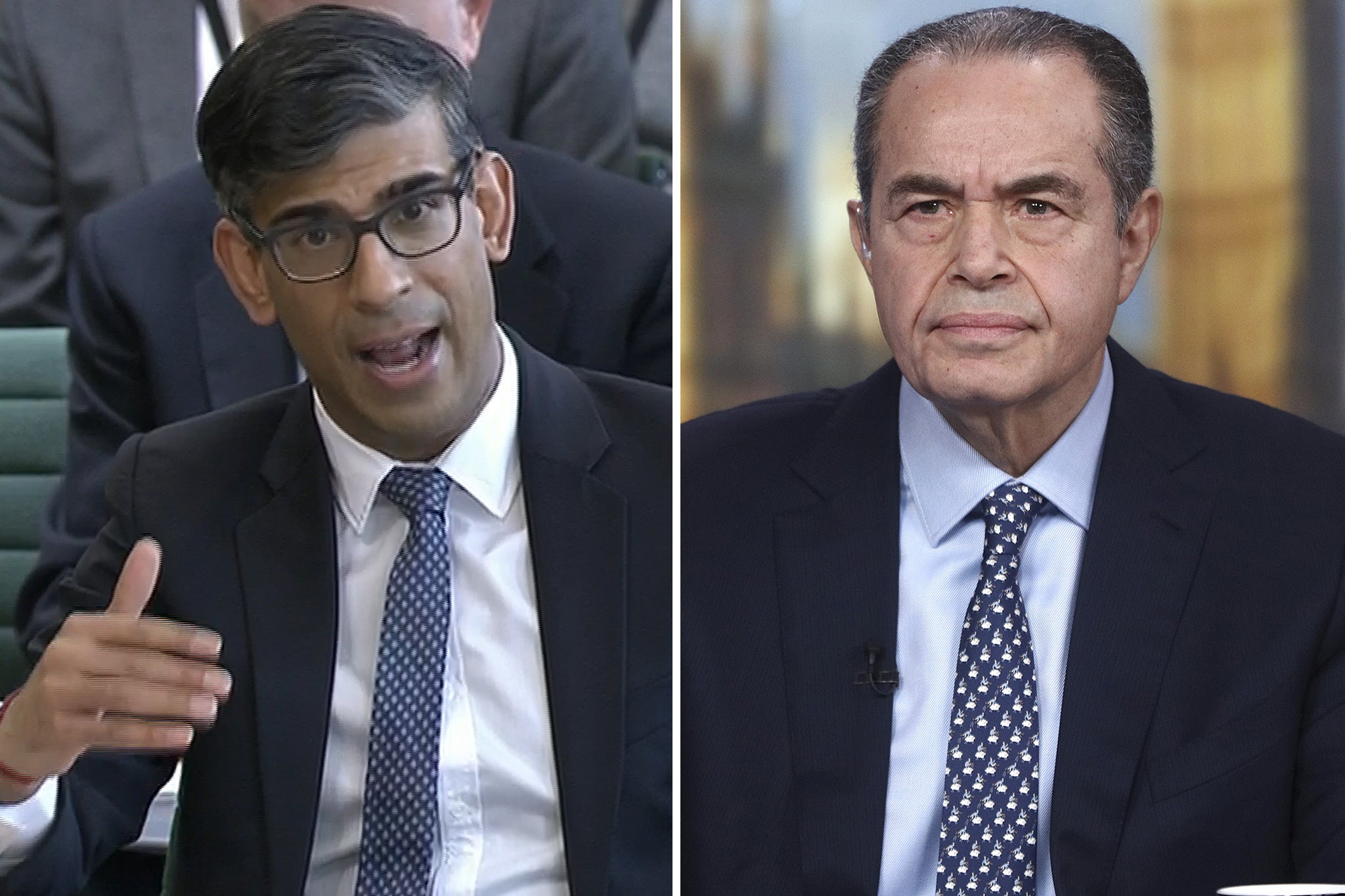Rishi still hasn’t learnt his lesson when it comes to cronyism
The PM had a golden opportunity to sweep the stables clean and remove the stench left behind by Boris Johnson, writes Andrew Grice – instead, he’s ruthlessly keeping the money rolling in


Rishi Sunak’s decision to nominate Mohamed Mansour, a donor to the Conservatives and a senior treasurer of the party, for a knighthood shines a light on cronyism.
The prime minister, accused of being “demob-happy” by Labour, slipped out a surprise mini-honours list at Easter, in a break with the tradition of publishing it at New Year and on the King’s official birthday in June.
Mansour, previously a politician in Egypt who now has British citizenship, has been honoured for his services to business, charity and political service. He handed the Tories £5m last year.
Now, I don’t think every party donor should automatically be banned from receiving honours or being appointed to the House of Lords. But Mansour’s knighthood tells us that Sunak has a blind spot about the likely public reaction.
Mansour does good work for charity, including support for The King’s Foundation (previously The Prince’s Foundation) and is a major contributor to the St Paul’s Cathedral’s Remember Me memorial to those who died from Covid.
But it is still a factor that Mansour’s “political service”, quite apart from his personal donations, involves drumming up donations to the Tories’ election war chest. His knighthood is bound to encourage others who would like to join him in the club to dip into their pockets.
The Tories clearly need to keep the money rolling in. They have ruthlessly tilted the general election playing field in their favour by raising the amount each party can spend in the 12 months before polling day by a whopping 80 per cent to £34m. This will probably allow them to outspend Labour.
Sunak, who promised “integrity, professionalism and accountability at every level” on the day he became PM, had a golden opportunity to sweep the stables clean and remove the stench left behind by Boris Johnson.
Yet he has shown little interest in improving standards in public life. His government has rejected several recommendations from watchdogs to tighten up the rules for ministers; business appointments for ex-ministers; public appointments; lobbying and the honours process. A sensible blueprint for change from the committee on standards in public life, has been gathering dust since 2021.
Perhaps Sunak doesn’t want to remind voters about Johnson, or poke the bear when he needs him on the election campaign trail. But reforms are long overdue; they should follow the money to counter the impression that party donations buy influence on policy, government contracts, honours and peerages.
No wonder the public is cynical about politicians. Trust declined amid the 2009 MPs’ expenses scandal and has been further eroded by the lies of Johnson, cronyism and VIP lanes. Only nine per cent of people trust politicians to tell the truth, the lowest since pollsters Ipsos began asking this question in 1983.
Under Keir Starmer, Labour is less reliant on trade unions for its funding than previously; the millionaire donors who walked away during Jeremy Corbyn’s leadership are back. But one of them could easily return to haunt Starmer if the party wins the election; Labour would not be immune from the same cronyism allegations.
Fortunately, Starmer allies tell me he is “deadly serious” about beefing up the standards system by creating a new independent Ethics Commission with more powers and a tougher code of conduct for ministers. He is studying closely proposals by a non-partisan commission chaired by Dominic Grieve, the former Tory attorney general.
Starmer will also be guided by Sue Gray, his chief of staff, who, in her previous life as Whitehall’s enforcer of the rules, knows more about them than anyone.
As PM, Starmer would be ideally placed to sweep out the stables; the former director of public prosecution’s commitment to public service is in his DNA. He could make a splash in his first 100 days in office with reforms to draw a line under Tory sleaze. They would have the added bonus of not costing any money.
Starmer should go further than he currently plans – for example, allowing the PM’s adviser on ministers’ interests to launch inquiries into their conduct without the PM’s approval. And he should make politics less reliant on millionaires by biting the bullet and providing more state funding for parties, coupled with a cap on individual donations.
True, this would be unpopular. There will never be a good time to do it. But there might never be a better time. Taking the big money out of politics once and for all would be less controversial if it were part of a bigger package to detoxify our rotten system.






Join our commenting forum
Join thought-provoking conversations, follow other Independent readers and see their replies
Comments